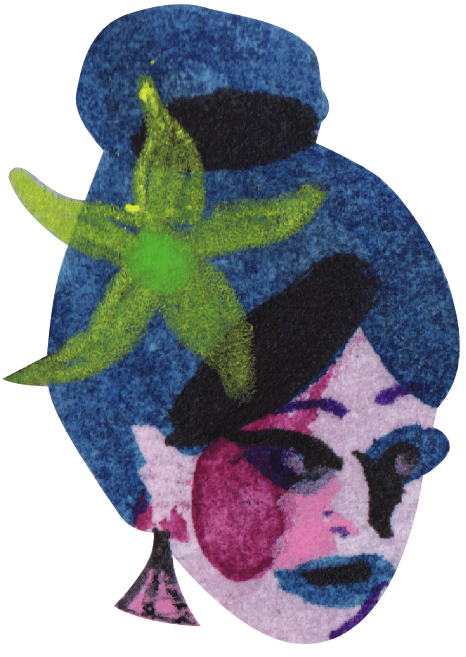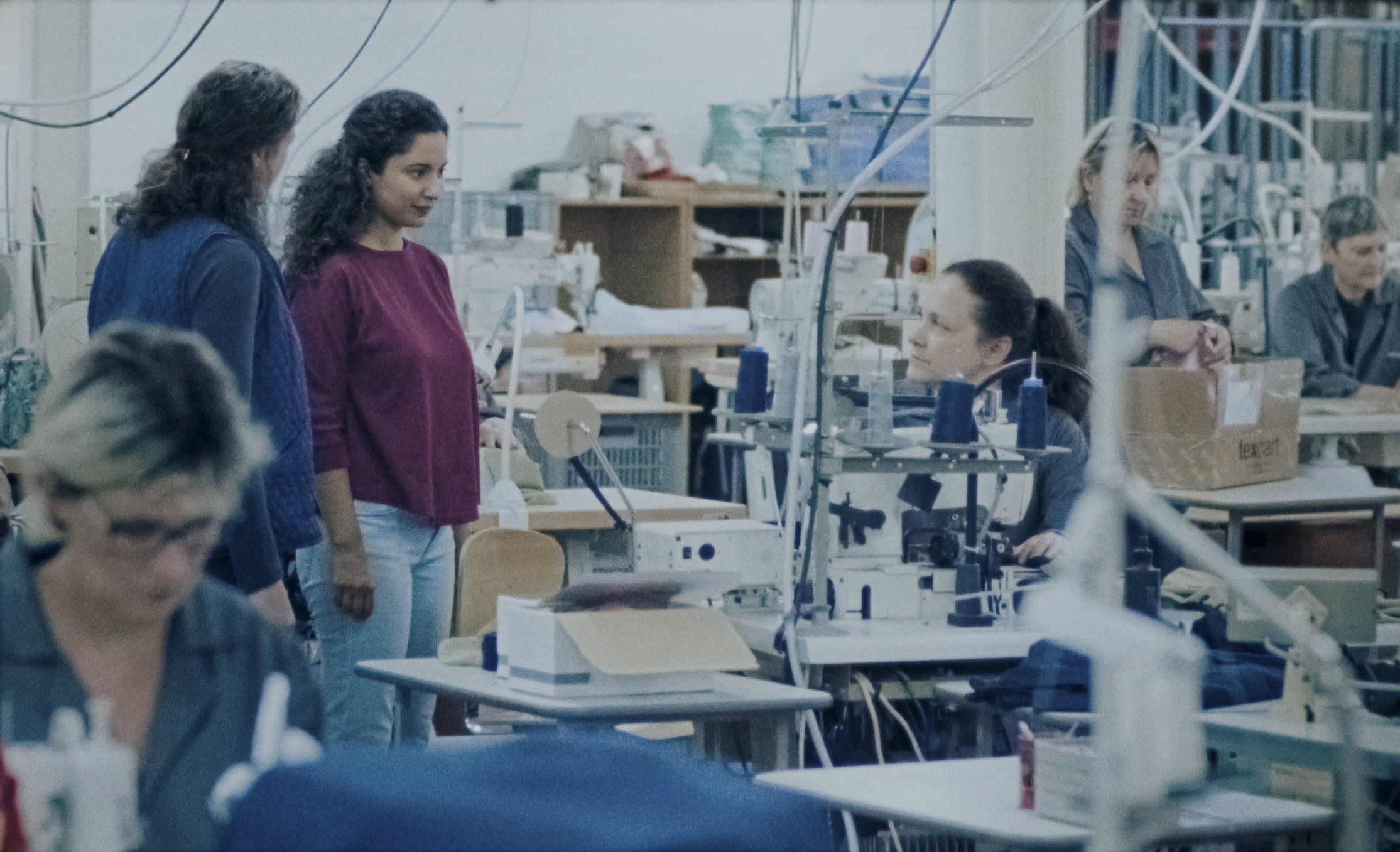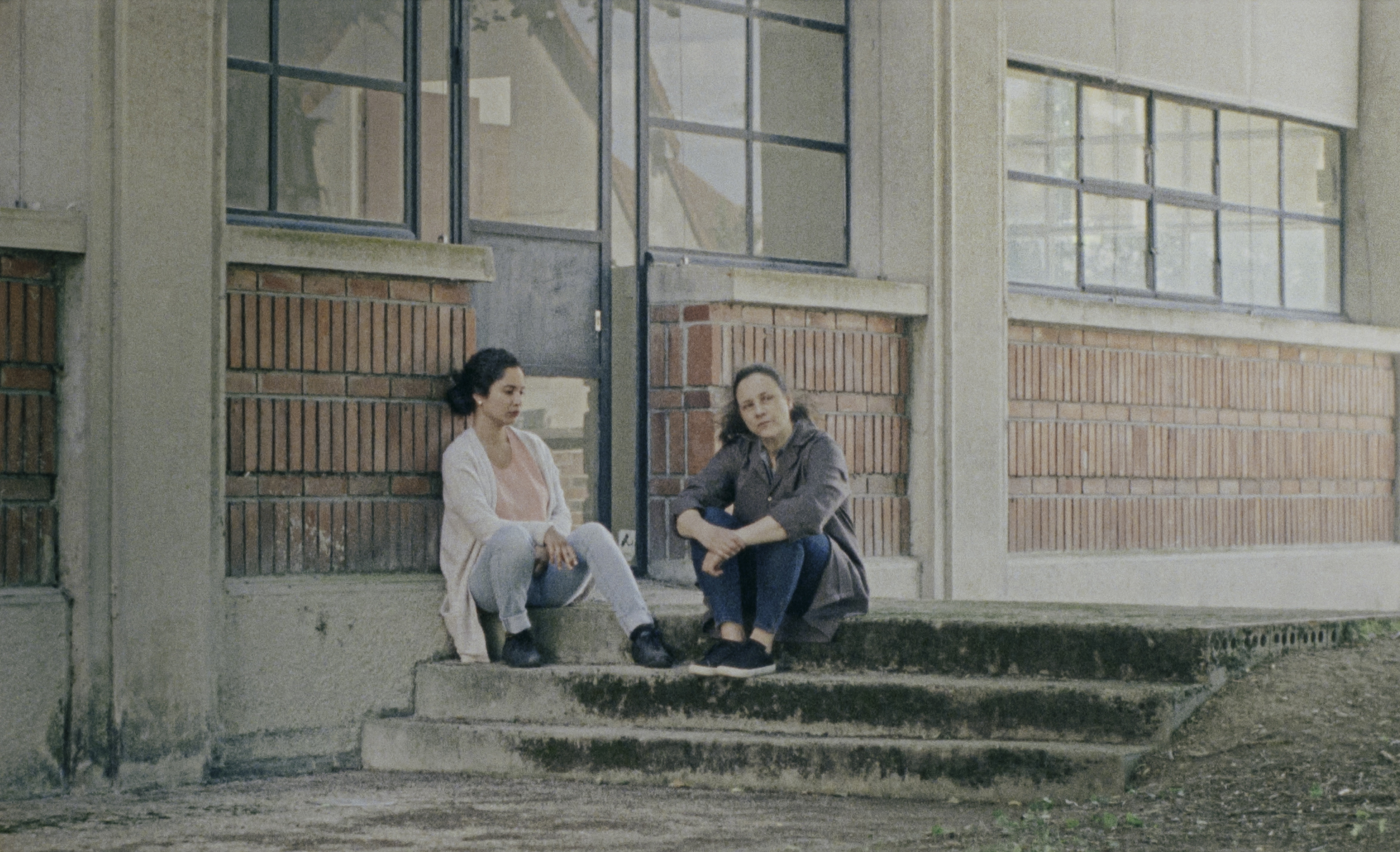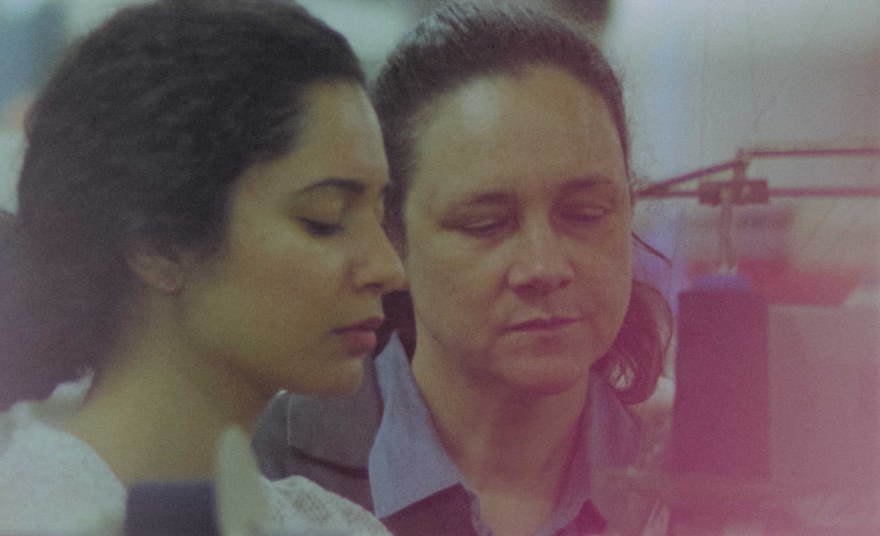Dîner avec Le Point de reprise
Entretien avec Nicolas Panay, réalisateur de Le Point de reprise
 À quel point êtes-vous intéressé par la thématique des conditions de travail du monde ouvrier et envisagez-vous de réaliser d’autres films autour de cette thématique ?
À quel point êtes-vous intéressé par la thématique des conditions de travail du monde ouvrier et envisagez-vous de réaliser d’autres films autour de cette thématique ?
J’avais envie de parler sans la citer de ma région d’adoption, l’Aube, autrefois fleuron de l’industrie textile dont il demeure encore de beaux restes. J’avais envie de parler de ces femmes (et ces hommes, même si dans mon film il n’y a que des personnages féminins) qui aujourd’hui encore travaillent le textile en France, dans un secteur économique que l’on sait redoutablement concurrentiel et où le dumping social entre les pays décide très souvent des lieux d’implantation d’usine. La mécanique du libéralisme crée, de fait, une concurrence internationale des ouvriers. Mais je ne voulais pas faire un film militant, décrivant les rouages d’une lutte sociale. Le Point de reprise est avant tout un point de rencontre : au-delà du fond social, ce qui m’intéresse est l’intimité qui se dégage de la rencontre d’Odile avec Hafsa. Comment les personnages développent une empathie alors que les enjeux économiques les mettent en concurrence ? Comment redonner du sens à une prise de décision ? Comment trouver de la beauté là où elle n’a a priori pas sa place ? Voilà ce que j’ai cherché à filmer. Je n’ai aucune idée de ce que mon avenir de cinéaste me réserve ! Le Point de reprise est mon premier court métrage produit, je n’ai pas encore de « zone de confort ». Pourquoi pas explorer d’autres univers, d’autres genres !

Quoique je n’aime pas trop élargir la focale, on vit dans un climat de xénophobie qui ne tait même plus son nom. Pour beaucoup, l’étranger est devenu le bouc-émissaire de tous les maux de la société, attisé par un discours en vogue auprès d’auditeurs plus têtus encore que les faits. Dans le film, il n’y a pas de bourreaux, mais seulement des victimes. Françaises ou étrangères, on se rend compte que toutes les ouvrières sont soumises à une oppression inhérente au système économique libéral. J’ai essayé de mettre cela en perspective pour démontrer qu’il peut y avoir une filiation entre deux personnes étrangères, au sens qu’elles ne se connaissent pas comme au sens de leur nationalité.


Avec le début du film, à l’intérieur du minibus des jeunes Tunisiennes, j’ai fait en sorte de capter le malaise des unes, la crainte des autres. J’ai essayé de maintenir un maximum de douleurs sourdes, même si parfois elles explosent comme dans la séquence du vestiaire, dans un exercice d’exutoire collectif. Le passé, le vécu, les trajectoires personnelles, influent sur les décisions. C’est aussi le sens du film : comment Odile va essayer de réparer son passé grâce à sa rencontre avec Hafsa. J’ai toujours essayé de garder une dimension naturaliste, sans chercher d’effets de mise en scène exacerbant une tension suffisamment manifeste par le thème, le scénario et les personnages. De manière générale, nous avons recherché un aspect brut, avec la pellicule notamment.

Pour le rôle d’Odile, j’ai sollicité Laurence Côte, qui m’a fait le plaisir et l’honneur d’accepter. Elle fait partie de ces comédiennes qui ont une classe naturelle. J’ai remarqué Sonia Emamzadeh (Hafsa) en casting, de même que Julia Leblanc-Lacoste (Amandine), Marianne Thiéry (Paula). J’ai proposé le rôle de Yasmina à Baya Belal. Avec la directrice de casting, Manon Garnier, nous avons cherché à composer un groupe de comédiennes cohérent pour les rôles, tout en gardant à l’esprit que nous voulions des personnages complexes, ambigus, parfois contradictoires. Je suis très heureux de ce casting. Toutes les comédiennes ont été très impliquées dans le projet en étant force de proposition.


Étant moi-même directeur du festival international du court métrage de Troyes (Court en Scène), je vois énormément de courts chaque année. Plus qu’un film en particulier, je dirais que c’est l’ensemble des films que je vois qui sont des micro-inspirations pour moi, parfois en positif, mais aussi parfois en négatif. Au poste de programmateur, on voit quelques films géniaux, beaucoup de films moyens et énormément de films mauvais. On voit ce qu’on aimerait savoir faire, comme ce qu’on ne doit jamais essayer de reproduire. C’est très enrichissant ! Si je devais citer quelques courts, qui n’ont pas forcément de rapport avec mon film, je dirais Avant que de tout perdre (Xavier Legrand), un court allemand qui s’appelle Die besonderen Fähigkeiten des Herrn Mahler (Paul Philip), le court croate Dok je trajao Roland Garros (Snjezana Tribuson), des courts plus légers comme Le Chant d’Ahmed (Foued Mansour) ou Nefta Football Club (Yves Piat)… Je peux continuer comme ça pendant 10 pages !

De mon point de vue de réalisateur comme de mon point de vue de directeur de festival, un bon film est un film qui fait vibrer quelque chose de profond chez le spectateur. Le mot « profond » est important. Il y a beaucoup de films qu’on aime bien sur le moment mais qu’on oublie rapidement. A contrario, il y a des films qui laissent des traces des années après, c’est le cas des films que j’ai cités plus haut pour moi. Pour moi c’est ça un bon film. Mais il n’y a pas de recette magique et parfois, la différence entre un bon film et un film moyen est très ténue ! Il y a quelque chose d’irrationnel et qui doit nous échapper un peu. Un bon film n’explique pas tout et laisse vivre le hors-champ comme l’imaginaire du spectateur.
Pour voir Le Point de reprise, rendez-vous aux séances de la compétition nationale F3.








